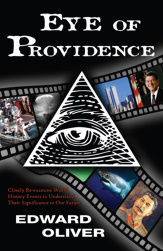
Many Old French words can be found by simply looking them up in any modern French dictionary. This glossary lists those words that are no longer a part of the modern French language. New words will be added just as soon as they become available.
OLD FRENCH DICTIONARY
Eage - (O.F. n.) era, age
Eau/Eaux - (O.F. n.f.) water, liquid sustinence, gain, booty
Ecclesiastique - (O.F. a.) ecclesiastic
Edit/Edict - (O.F. n.) edict, royal edict
Effainct - (O.F. n.) reduced
Effort - (O.F. n.) efforts, opposition
Effrayeur/Effroy - (O.F. a.) frightening, fearful, awesome
Eglise - (O.F. n.) church (eclesiastic)
Electeur - (O.F. n.) inheritor, the elect
Election - (F. n.) election
Elles - (F. p.) them all
Embusches - (O.F. n.) ambush
Emmenees - (O.F. n. pl.) conquests
Empereur - (O.F. n.) emperor
Empire - (O.F. n.) empire
Empirees - (O.F. p.) deteriorating, aloof, turning to stone
Empoisonne - (O.F. p.) poisoned
Emprise - (O.F. n.) enterprise
En - (O.F. p.) in, on, as, for, etc..
Enclin - (O.F. a.) inclined, destined
Encontre - (O.F. p.) against
Encor - (O.F. p.) repeating, again, still
Enfant/Enfans - (O.F. n.) infant, child, clone
Enfer - (F. n.) Hell, Hades, infernal place
Enferrez - (O.F. a.) shackled, confined
Enflez - (O.F. p.) puffing up, inflating
Enfoncee - (O.F. p.) knocked down
Enfrayer - (O.F. n.) fright
Engaige - (O.F. v.) engage, accept
Ennemis - (O.F. n.) enemy
Enno-sigee
- (L. n.) enormous-promontories, ensigns (standing silent)
note: prefix "Enno" - enormous, large,
note: Latin "sigeum" - a promontory
Enscriture - (O.F. n.) inscription
Ensemble - (O.F. a.) assemble, together, united
Entamer - (O.F. v.) cut, slice, break, broken, trodden down, etc..
Entant - (O.F. n.) double, intended replacement, duplicate
Entendre - (O.F. p.) intend
Entiers - (O.F. a.) strong, healthy
Entrebatron - (O.F. n.) fighting, battling
Entree - (O.F. n.) entry
Entretien - (O.F. n.) obscuration, takeover, a "white-out"
Envenimee - (O.F. p.) envenomed, poisoned
Envers - (O.F. n.) undoing, downfall
Envie - (O.F. n.) envy
Eschelle - (O.F. n.) ladder
Escosse - (O.F. n.) Scots, Scotland
Escouter - (O.F. v.) lis
Esclandre - (O.F. n.) uproar
Escunder - (O.F. p.) asunder, apart, divided
Esleu - (O.F. p.) elected, selected, chosen
Esleuez - (O.F. p.) lifting, raising
Esloigne - (O.F. p.) far off, removed
Esmeus - (O.F. v.) rise up, stir up
Esmotion - (O.F. n.) commotion
Espaingne - (O.F. n.) Spain
Esperons - (O.F. v.) endure, suffer through
Espoir - (O.F. n.) hope
Esponger - (O.F. v.) sponge, absorb
Espouse - (O.F. n.) spouse, wife
Espoventable - (O.F. a.) dreadful, frightfull
Esprit - (O.F. n.) spirit, thought, opinion, soul, ghost
Esprouve - (O.F. v.) approve, certify, baptize
Estade - (O.F. n.) stadia
Estages - (O.F. n. plur.) positions, placement
Estainct - (O.F. p.) wasting, expending, quitting, ending
Estant - (O.F. p.) being, resting
Estat - (O.F. n.) status, condition
Estincelle - (O.F. n.) spark, shooting star, burning ember
Esto/Estre
- (O.F. v.) is, to be, must be, etc.
note: from French "est" - (present indicative of) "etre"
Estoc - (O.F. n.) a small sword, blade, knife, dagger
Estoient - (O.F. p.) volunteered
Estoit - (O.F. a.) a star, shining, blessed
Estomac - (F. n.) food, sustinence
Estrainct - (O.F. p.) extinguished
Estrange - (O.F. a.) strange
Estrangiers - (O.F. a.) foreign, alien
Estroit - (O.F. a.) closely, tightly
Estude - (O.F. n.) study, studio
Et - (O.F. p.) and
Eternite - (O.F. n.) eternity
Exces - (O.F. n.) excess
Excroissance - (O.F. n.) excrescence, ejecta
Exempt - (O.F. p.) exempt
Exigue - (O.F. a.) divided, faint, forgotten, empty
Exilez - (O.F. n. plur.) exiles
Expandu - (F. p.) expended
Exploicter - (F. a.) exploratory
Exploree - (O.F. p.) enduring, working through
Extipices - (O.F. n. plur.) entrails
Extremes - (O.F. a.) far away
OLD FRENCH DICTIONARY:
The Old French language included many words from Latin and Greek word roots and also regional dialects such as Provencal and and Catalan. You can also check under the classical "class." and figurative "fig." listings in larger modern French dictionaries. Old French can also differ from modern French, since words like "fleuve," which now means "river," also meant "route" or "course," in Old France because rivers were often used as the safest "route" or "course" when travelling between major cities, since roads were poorly maintained, and robbers often waited along these routes. Please keep in mind that many figures of speech such as "the oil and the wine," which does not seem to make much sense today, in those days meant "the good things."
If you would like to learn more about the writings of the classical prophets and how their prophecies may relate to events in your future, please click on the secure link below to order your book by Edward Oliver.
Copyright 2004-2026 Edward Oliver